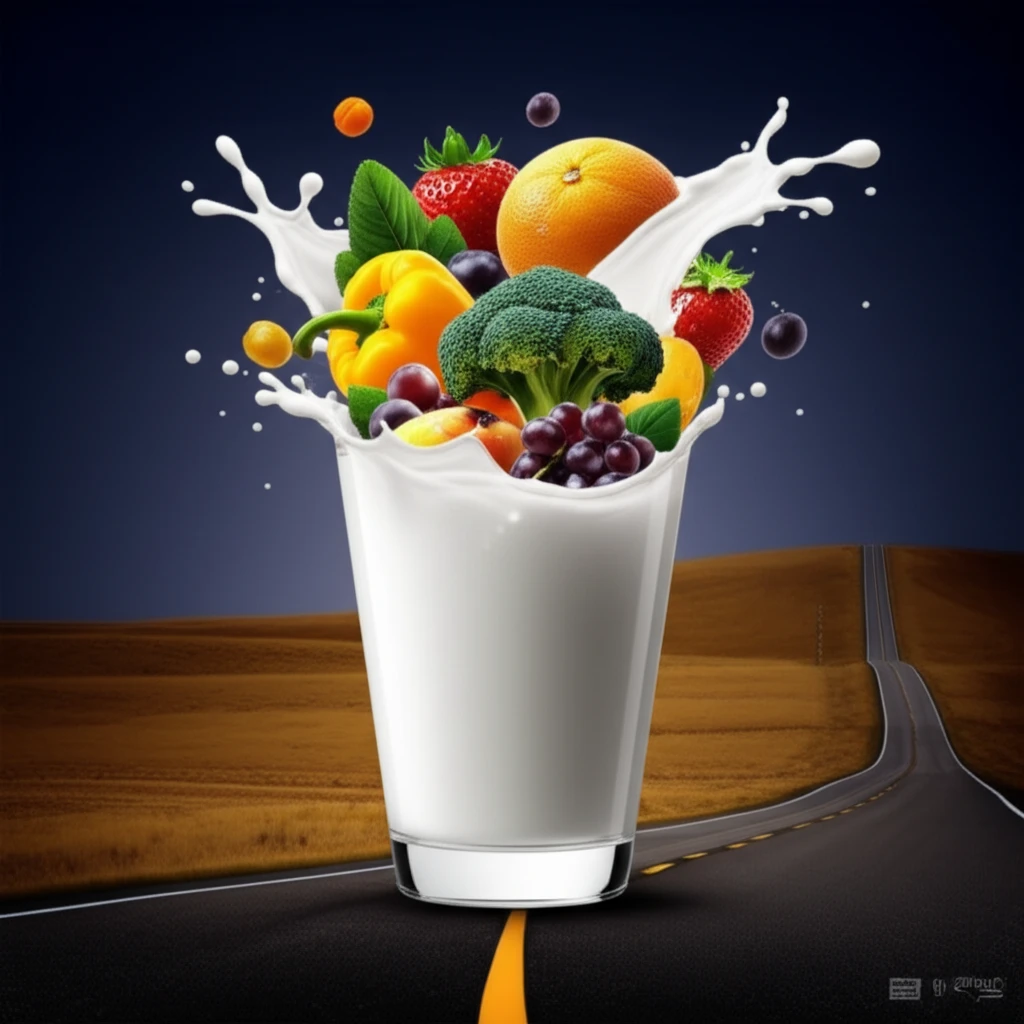
Milk, Fruits, and Longevity: Can Antioxidants Modify the Mortality Risk?
"Uncover the connection between milk consumption, antioxidant intake, and mortality rates. How can a balanced diet influence your lifespan?"
For decades, milk has been touted as a nutritional cornerstone, essential for strong bones and overall health. Yet, recent studies have stirred controversy, suggesting that high milk consumption might not be as beneficial as we once believed. As a result, health enthusiasts and researchers are starting to ask critical questions about the balance of our diets and their impact on long-term health.
A groundbreaking study published in the American Journal of Epidemiology has investigated the relationship between milk, fruit and vegetable intake, and mortality rates, challenging conventional wisdom. This research delves into whether the potential risks associated with high milk consumption can be mitigated by incorporating antioxidant-rich foods into our daily meals.
By examining extensive data from Swedish cohort studies, researchers aimed to uncover how dietary habits influence lifespan. The core question: Can a diet rich in fruits and vegetables counteract the potential negative effects of high milk consumption? Here’s a closer look at the findings and what they mean for your diet and overall health.
Decoding the Milk and Mortality Connection

The study, led by Karl Michaëlsson and his team, analyzed data from over 61,000 women and 45,000 men in Sweden. Researchers tracked participants over decades, noting their dietary habits—specifically milk, fruit, and vegetable intake—and monitoring mortality rates. The goal was to determine if a diet high in antioxidants could modify the associations between milk consumption and mortality.
- Elevated Risk with High Milk and Low Fruit/Vegetable Intake: Women who consumed three or more glasses of milk per day and had minimal fruit and vegetable intake (less than one serving) faced a significantly higher hazard ratio for death (2.79).
- Antioxidants Offer Protection: Women who drank the same amount of milk but consumed at least five servings of fruits and vegetables daily saw a reduced hazard ratio (1.60).
- Similar Trends in Men: Men showed similar, though less pronounced, trends. High milk consumption combined with low fruit and vegetable intake increased mortality risk, while a diet rich in antioxidants provided a protective effect.
Balancing Your Diet for a Longer, Healthier Life
The study underscores the importance of a balanced diet rich in antioxidants to counteract potential risks associated with high milk consumption. While milk can be a valuable source of nutrients, it’s crucial to ensure adequate intake of fruits and vegetables to promote overall health and longevity. It's important to consult with healthcare professionals or registered dietitians to get personalized dietary advice based on individual health status and needs.
